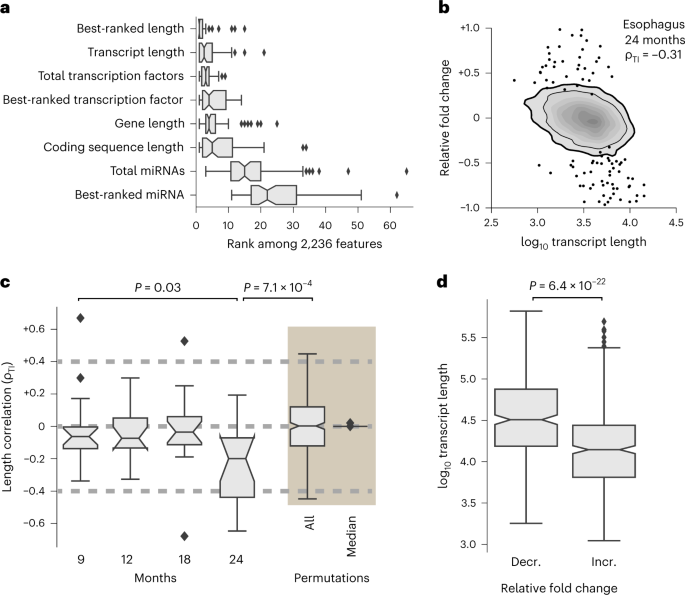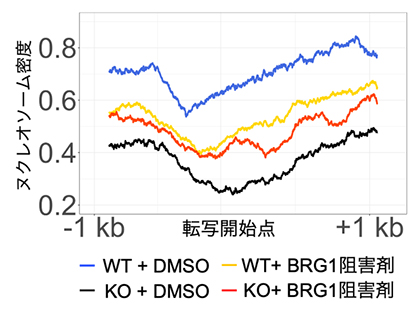新たに発見されたメカニズムは、ヒトを含むさまざまな動物で共通している Newly uncovered mechanism holds true across a variety of animals, including humans
2022-12-09 ノースウェスタン大学
すべての細胞は、長い遺伝子と短い遺伝子の活性のバランスをとる必要があります。研究者たちは、長い遺伝子はより長い寿命につながり、短い遺伝子はより短い寿命につながることを発見した。また、老化した遺伝子は長さに応じて活性が変化することもわかった。具体的には、加齢に伴い、短い遺伝子に活性が移行するのです。そのため、細胞内の遺伝子活性のバランスが崩れてしまうのです。
驚くべきことに、この発見はほぼ全世界共通であった。研究チームは、このパターンを、ヒトを含む複数の動物、および研究で分析した多くの組織(血液、筋肉、骨、および肝臓、心臓、腸、脳、肺などの臓器)で発見したのである。
この新たな発見は、加齢の進行を遅らせる、あるいは逆に遅らせるための介入策につながる可能性があります。
この研究成果は、学術誌『Nature Aging』に掲載されました。
<関連情報>
- https://news.northwestern.edu/stories/2022/12/aging-is-driven-by-unbalanced-genes/
- https://www.nature.com/articles/s43587-022-00317-6
加齢は全長と関連したトランスクリプトームのアンバランスと関連している Aging is associated with a systemic length-associated transcriptome imbalance
Thomas Stoeger,Rogan A. Grant,Alexandra C. McQuattie-Pimentel,Kishore R. Anekalla,Sophia S. Liu,Heliodoro Tejedor-Navarro,Benjamin D. Singer,Hiam Abdala-Valencia,Michael Schwake,Marie-Pier Tetreault,Harris Perlman,William E. Balch,Navdeep S. Chandel,Karen M. Ridge,Jacob I. Sznajder,Richard I. Morimoto,Alexander V. Misharin,G. R. Scott Budinger & Luis A. Nunes Amaral
Nature Aging Published:09 December 2022
DOI:https://doi.org/10.1038/s43587-022-00317-6

Abstract
Aging is among the most important risk factors for morbidity and mortality. To contribute toward a molecular understanding of aging, we analyzed age-resolved transcriptomic data from multiple studies. Here, we show that transcript length alone explains most transcriptional changes observed with aging in mice and humans. We present three lines of evidence supporting the biological importance of the uncovered transcriptome imbalance. First, in vertebrates the length association primarily displays a lower relative abundance of long transcripts in aging. Second, eight antiaging interventions of the Interventions Testing Program of the National Institute on Aging can counter this length association. Third, we find that in humans and mice the genes with the longest transcripts enrich for genes reported to extend lifespan, whereas those with the shortest transcripts enrich for genes reported to shorten lifespan. Our study opens fundamental questions on aging and the organization of transcriptomes.


